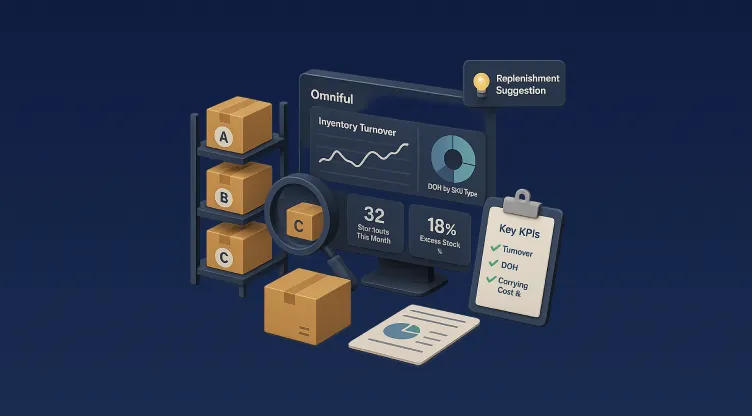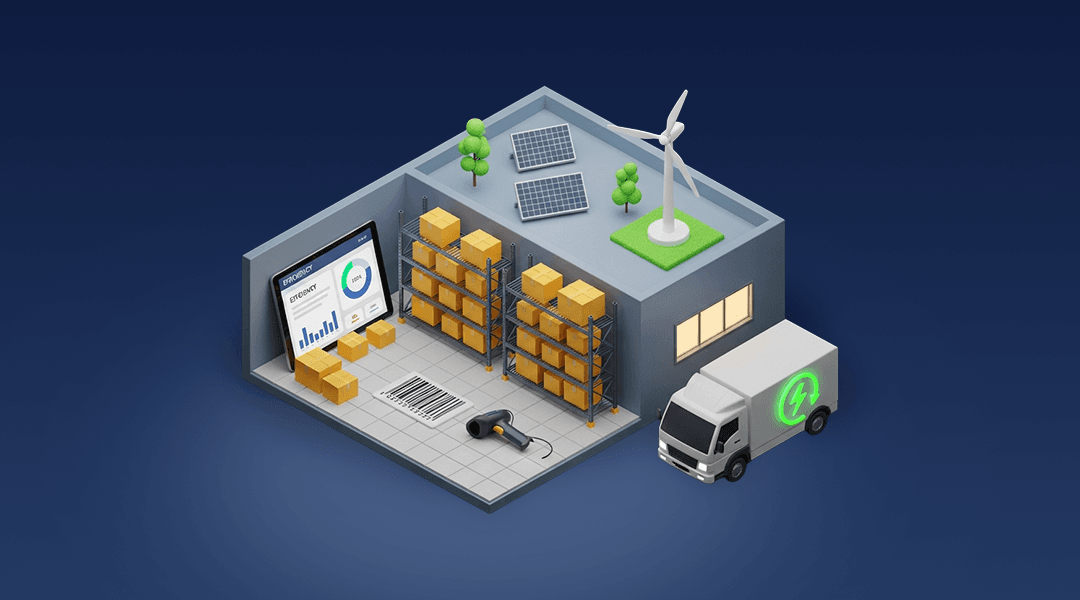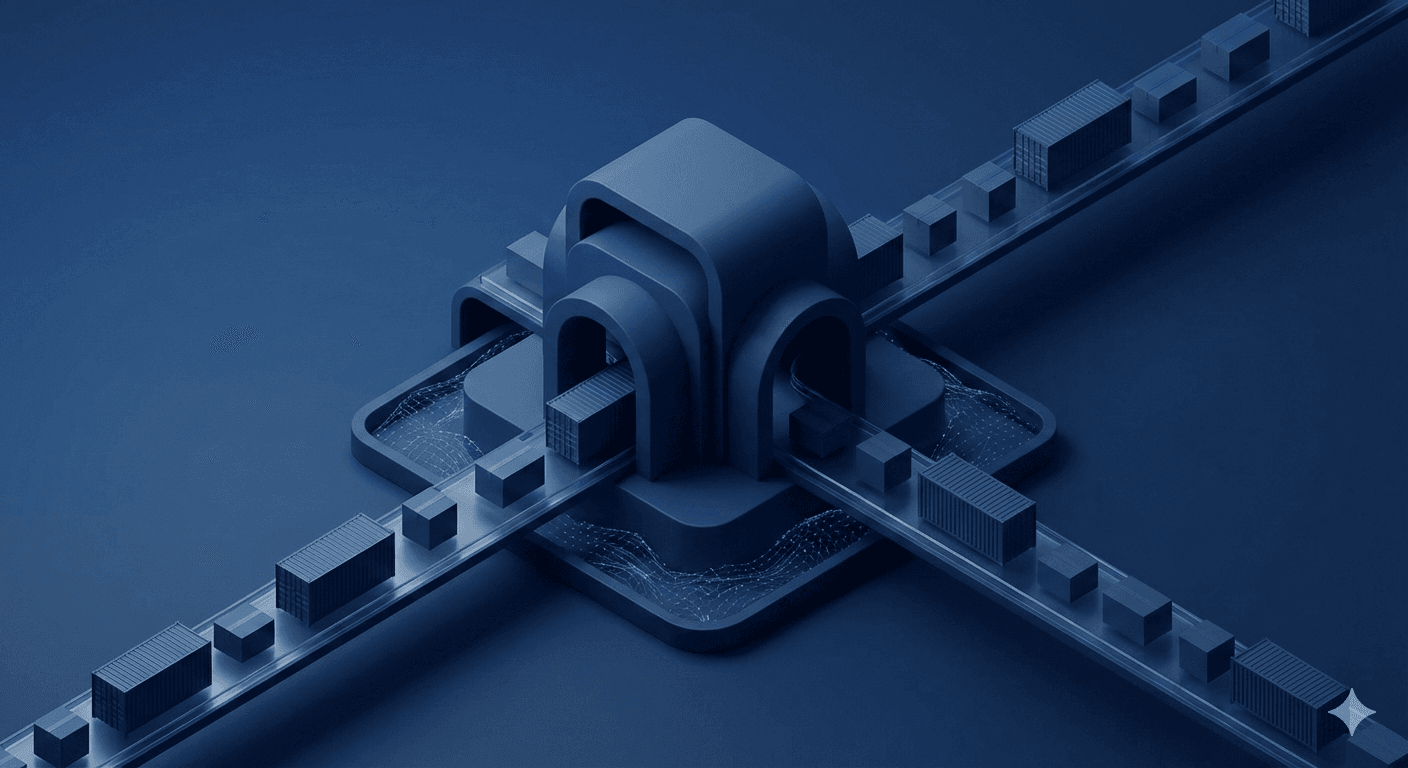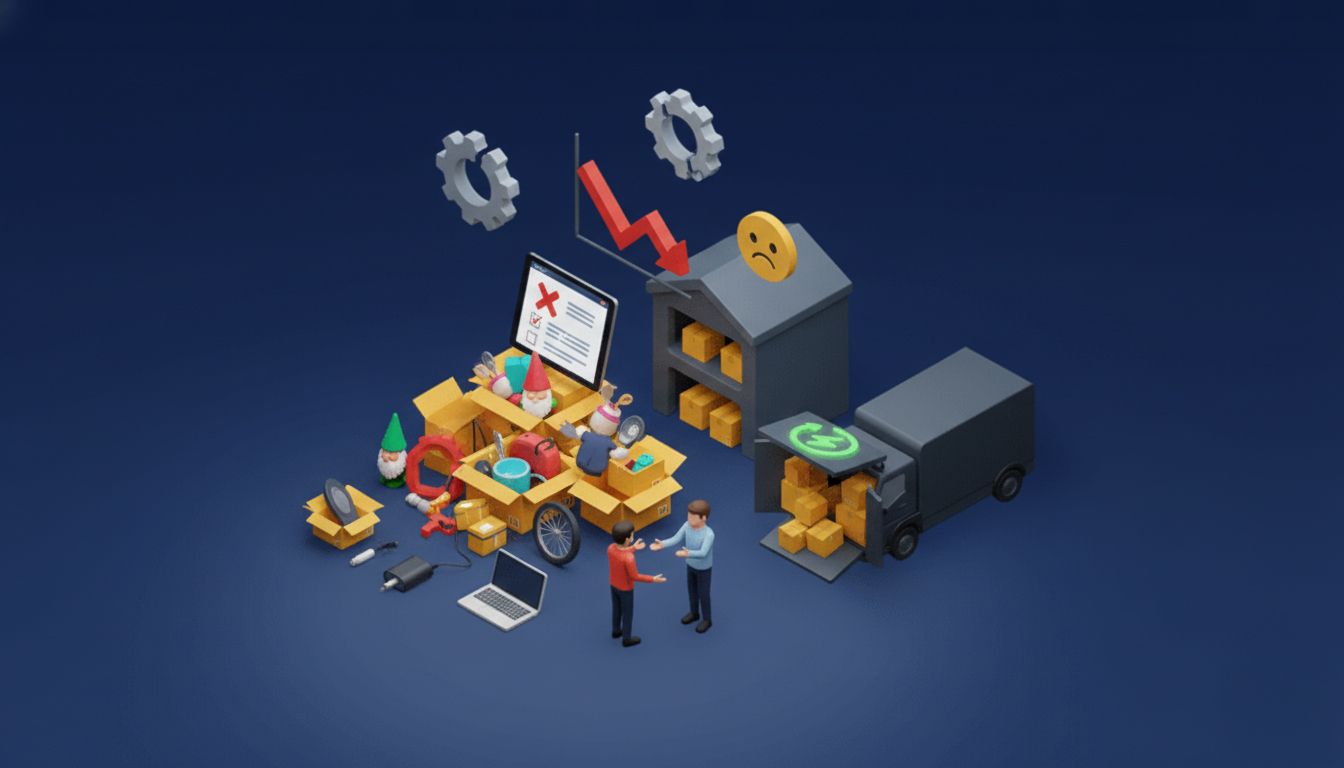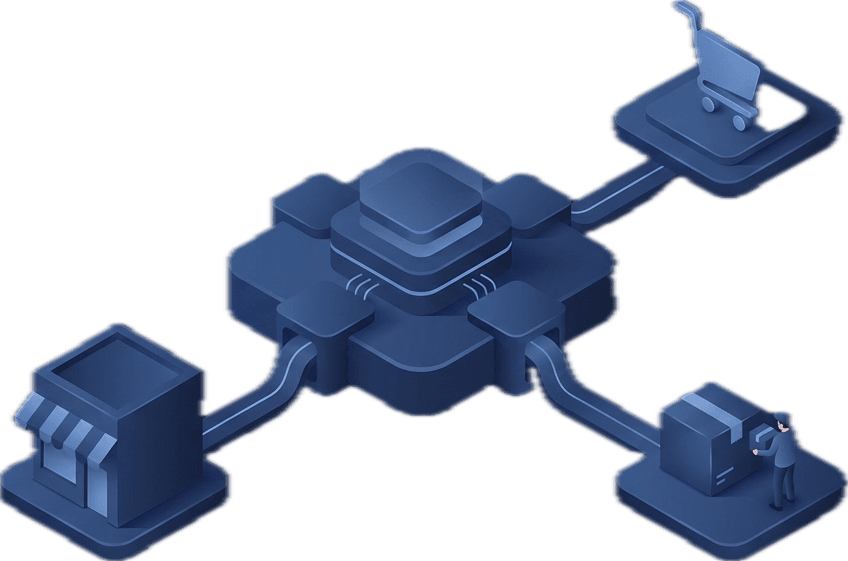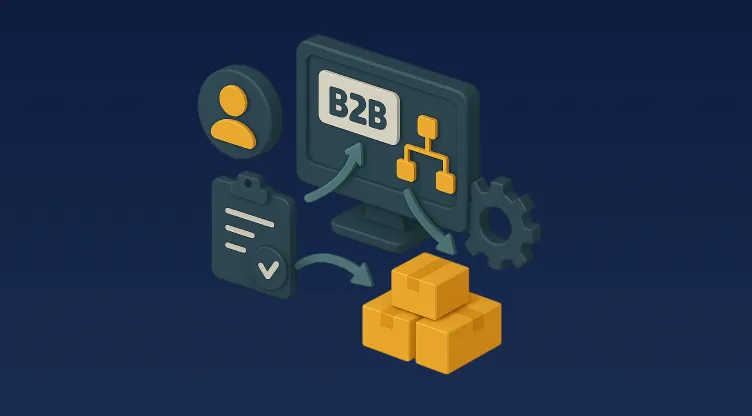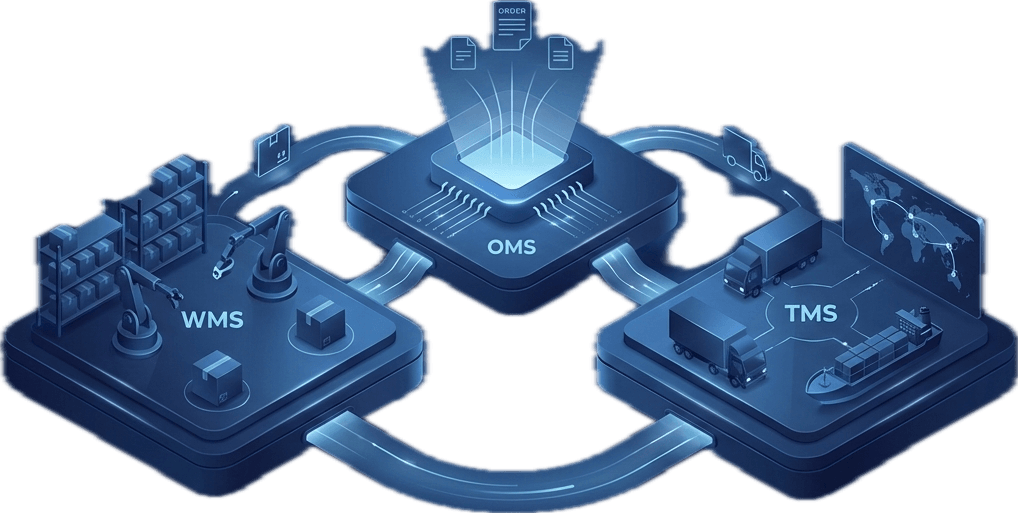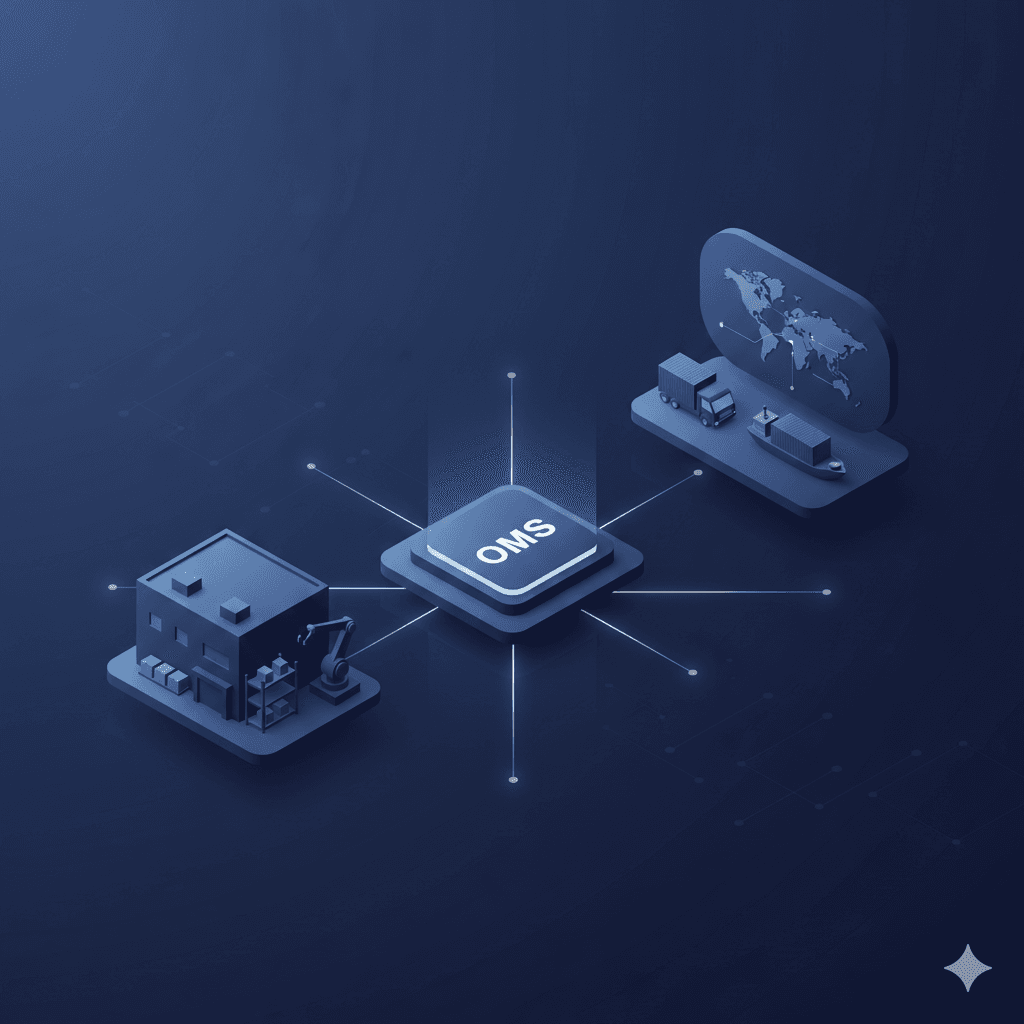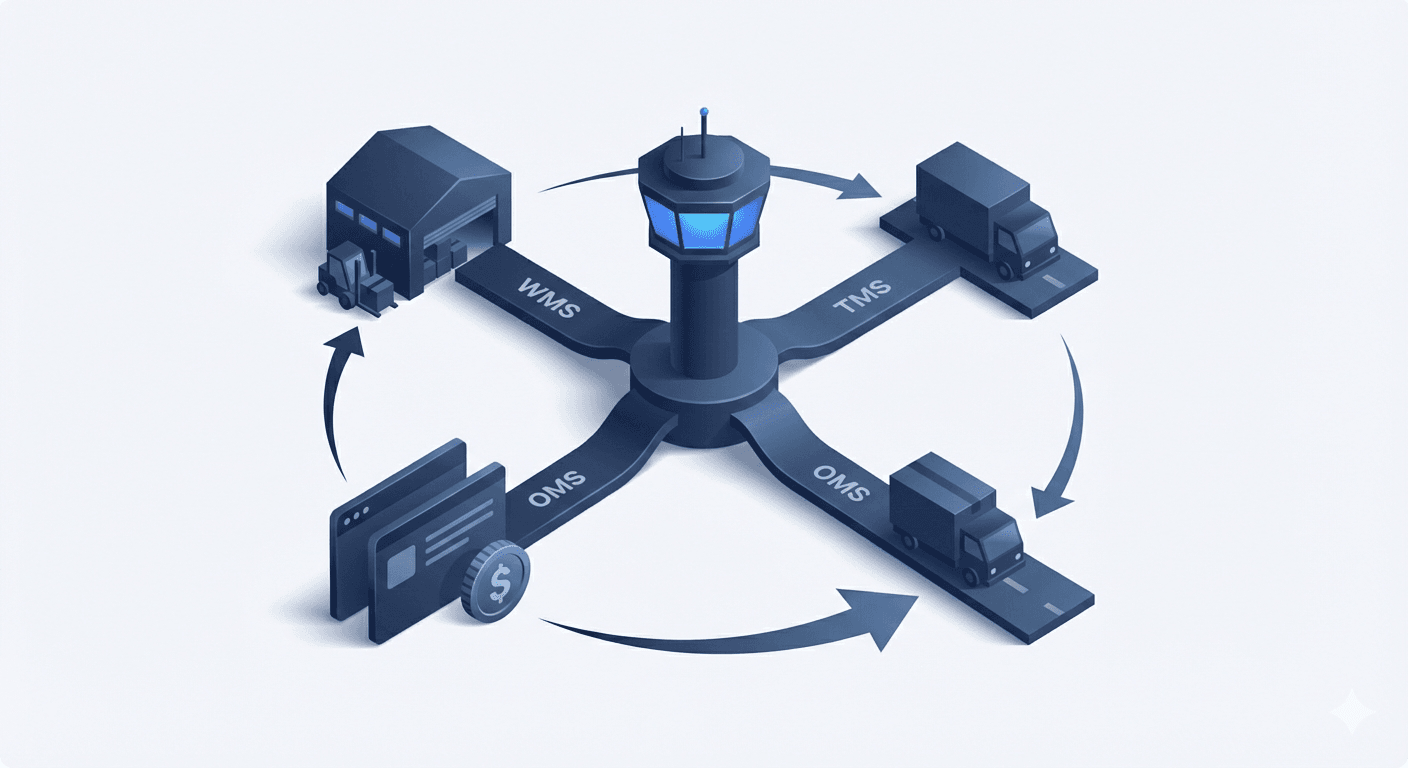Who Gains the Most from a TMS? A Deep Dive into Retail, 3PL, and Manufacturing

Table of Contents
Snapshot Summary: Logistics Success Stories Across Sectors
- Retailers achieve timely deliveries through route automation.
- 3PLs scale fast using consolidated shipment handling and real-time data.
- Manufacturers sync production with delivery schedules for better flow.
- A Transportation Management System gives unmatched visibility and control.
- All sectors benefit from cost reductions, faster fulfilment, and customer trust.
Why TMS Is a Strategic Necessity Today
Moving goods efficiently has become a critical business challenge. Whether you’re shipping to a customer’s doorstep or coordinating raw material supply across borders, a Transportation Management System (TMS) delivers precision and visibility.
It’s no longer about just getting products from point A to B. Businesses need real-time data, flexible operations, and systems that respond instantly to changes. A modern TMS achieves all this and more—especially across high-demand sectors in the MENA region.
With growing eCommerce volumes and stricter delivery expectations, logistics networks across Saudi Arabia, the UAE, and Egypt are increasingly turning to intelligent, scalable TMS platforms.
The Retail Sector: Faster Fulfilment, Better Customer Experience
Retailers—especially those with both online and physical stores—operate in a fiercely competitive environment. Customers expect accurate deliveries, flexible returns, and continuous tracking.
Typical Retail Logistics Problems
- Complex routing for last-mile deliveries
- Disorganised coordination between fulfilment and delivery teams
- Lack of transparency across logistics stages
- Difficulty in handling large-scale returns
Retail Solutions with a TMS
A strong TMS platform allows retailers to:
- Automate delivery routes: Avoid traffic delays and reduce transit times.
- Track in real time: Customers and teams can see package status at every step.
- Optimise delivery windows: Use data to improve delivery promise accuracy.
- Simplify reverse logistics: Manage returns via a connected Returns Management system.
By connecting the TMS with Order Management and Inventory Management, retailers ensure end-to-end visibility from shelf to doorstep.
3PL Companies: Powering Multi-Client Logistics
Third-Party Logistics (3PL) providers handle a vast range of tasks—from receiving inventory and storing goods to delivering orders for multiple clients. Their success depends on efficiency, reliability, and flexibility.
Challenges 3PLs Commonly Face
- Disparate workflows for different clients
- Limited delivery tracking for stakeholders
- Difficulty scaling with increased order volume
- High operational overhead without automation
TMS Advantages for 3PL Providers
Implementing a TMS enables:
- Grouped dispatching: Orders going to nearby areas are grouped into single trips.
- Fleet visibility: Monitor driver movements, fuel usage, and drop-off success.
- Custom dashboards: Offer each client a dedicated interface and reporting view.
- Scalable routing rules: Quickly adjust delivery logic per contract or geography.
Omniful helped a major 3PL partner in the UAE create a tech-powered dark store network across KSA. Using our TMS, they automated route planning, reduced errors, and supported high-speed deliveries with minimal infrastructure.
See how Omniship adds value to multi-provider logistics with seamless shipping integrations.
Manufacturing: Precision-Driven Movement and Timely Production
Manufacturers work within tight supply schedules. A delay in raw material shipment can affect an entire production batch, leading to downtime and lost revenue.
Core Logistics Issues in Manufacturing
- Lack of delivery visibility for inbound supplies
- Inefficiency in coordinating internal and third-party fleets
- Difficulty managing cross-border transport
- No unified control of delivery status
Benefits of TMS in Manufacturing
With a TMS, manufacturers can:
- Plan logistics by region: Use geofencing to manage factory and warehouse zones.
- Assign carriers automatically: Reduce the time spent scheduling transport.
- Sync transport with production: Know exactly when supplies will arrive.
- Enable proactive alerts: Get notified of route issues or delivery delays in real time.
In MENA, especially within industrial hubs in Abu Dhabi and Jeddah, manufacturers use TMS tools to automate transport between their regional plants, reduce handling time, and boost production efficiency.
Core TMS Features That Drive Results Across Industries
Regardless of sector, the following features make a Transportation Management System essential:
- Live Tracking: Know the exact status and location of all in-transit goods.
- Route Automation: Generate the shortest and most efficient paths instantly.
- Fleet Coordination: Assign, monitor, and optimise in-house and third-party fleets.
- Delivery Clustering: Group similar orders together to save resources.
- Driver Management: Automate job assignments and assess performance.
- Cash-on-Delivery Handling: Monitor COD transactions with detailed cash ledger reports.
Explore Omniful’s full TMS feature list for more insights.
Why Integration Is Critical for TMS Effectiveness
A standalone TMS can deliver benefits, but real impact happens when it’s linked with other logistics systems. Leading businesses integrate their TMS with:
- Warehouse Management Systems to ensure inventory accuracy
- Point of Sale to enable same-day fulfilment
- Shipping Gateways for real-time carrier access
- Plug and Play Integrations to link with tools like Shopify, Salla, and WooCommerce
Such a setup creates a unified logistics ecosystem, reducing data silos and boosting operational speed.
MENA Market Insights: TMS Adoption Trends
Several forces are pushing TMS adoption in the Middle East and North Africa:
- Rising eCommerce Demand: Faster delivery expectations in cities like Riyadh, Jeddah, and Dubai.
- Cross-Border Commerce: Regional brands increasingly ship across the GCC.
- Logistics-First Investment: Countries like Saudi Arabia are investing in logistics zones and infrastructure.
- Urban Growth: Last-mile logistics in crowded city environments is getting more complex.
A TMS adapted to these dynamics supports hyperlocal models, reduces delivery times, and integrates regional compliance tools like ZATCA invoicing in Saudi Arabia.
When Should a Business Consider a TMS?
If your operations include any of the following, it’s likely time to implement a Transportation Management System:
- Delivery teams often miss deadlines or routes
- You're using multiple platforms to manage shipping
- You operate across several cities or countries
- You struggle to manage fleet and delivery performance
- There is no automation in assigning delivery tasks
Introducing a TMS brings immediate improvements across planning, cost management, and customer communication.
Final Thoughts: Logistics Is Your Competitive Edge
Today, logistics is no longer a back-end task—it’s a core part of the customer experience. Companies that can move goods faster, cheaper, and more predictably gain a critical edge.
By using a TMS system, retailers ensure on-time deliveries, 3PLs expand confidently, and manufacturers stay aligned with production timelines.
A flexible, AI-powered TMS platform is not a future upgrade—it’s a current need for growing businesses in the MENA region.
Frequently Asked Questions About TMS
How does a TMS work with existing logistics systems?
Modern TMS platforms connect easily with OMS, WMS, and shipping gateways to centralise data and automate tasks.
Can small businesses use a TMS?
Yes, TMS tools are scalable. Small firms can start with route automation and expand into advanced features as they grow.
Does a TMS reduce costs?
Definitely. By automating routing, reducing manual work, and minimising delivery errors, businesses often see a sharp drop in operational costs.
What’s unique about Omniful’s TMS for the MENA market?
It supports Arabic localisation, GCC tax compliance, and hyperlocal models like dark stores and on-demand delivery—making it ideal for regional businesses.
Is driver and fleet tracking included?
Yes. You can monitor all driver routes, delivery statuses, and even manage fleet maintenance schedules from a single dashboard.



